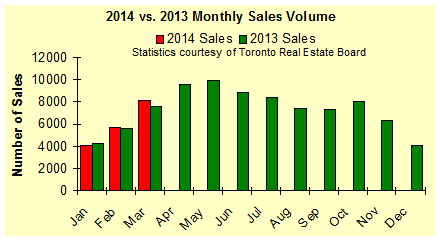Monthly Newsletter: January 2005
Happy New Year everybody! I’d like to wish you and your family a very safe and prosperous 2005 on behalf of all of us here at Plex Realty. January is a great time to set new goals and plan for the year ahead. I sincerely hope that all of your dreams and aspirations for this New Year come to pass.
One of your resolutions for 2005 may be to try and be more fiscally responsible and to try and create greater returns on your investment dollars. A great way to get started is to come and join us at the Financial Forum at the Metro Convention Centre from January 27th through to January 30th. If you are on my e-mail list, I have attached a free pass for you to attend in case you missed last month’s newsletter. Feel free to print out as many passes as you need and bring your friends and associates. If you are not on my list, please send me an e-mail and I will make sure that I get you a free pass for the show. This trade show is Canada’s foremost investment gathering and will be indispensable for you to make informed decisions about the myriad of financial products that are available to you. Naturally, we will be there talking about the income property market in Greater Toronto and why we feel that real estate in the GTA is still one of the best long-term investment strategies. We will also be hosting two seminars. David Riseman will be talking about the overall economic outlook for real estate in Toronto, while Marcus Tzaferis will introduce you to the many mortgage and financing options that exist in the marketplace today. I really think that many of you will benefit from attending and will come out of it with a much broader understanding of how best to spend your investment funds. This is the last newsletter that I will doing before the show, so I hope to see as many of you there as possible.
The New Year is traditionally the time to make predictions about where the real estate market is heading. Real estate forecasters look at many socio-graphic and economic factors and try to get a sense of where prices will be going in the months ahead. So what’s going on? Essentially, one of three things can happen. The feverish demand that we have been experiencing slows down, houses sit for sale for a longer time and the overall market slows down. On the other hand, since we still (as recently as November) have been experiencing record-breaking sales months, this trend can continue with housing prices continuing to rise. Demand continues to outpace supply and we remain in a sellers’ market with very strong prices. The third scenario is where the market pretty much stays the same as it has been over the past year without a noticeable spike up or down in demand or ultimate sale prices.
It is interesting when you get differences of opinion. Shouldn’t all experts come to some sort of consensus or find some sort of common ground? Not so. I will present three different schools of thought here and then give you my own version of what I think will happen in the next twelve months.
Garth Turner, one of Canada’s leading real estate and financial commentators, has been trumpeting the benefits of short-term variable rate mortgages since interest rates continue to stay low. The betting just a couple of months ago was that the prime rate of just over 4 per cent would be somewhere near 6 per cent by the end of next year. That would increase the cost of a variable rate mortgage by about the same amount. But, then came December 7, and everything changed. The Bank of Canada decided to hold the line on interest rates, canceling an expected increase and holding the prime at 4.25 per cent. More significantly, in the commentary that accompanied the bank’s decision, a key statement was missing – that interest rates were likely to rise in the future as inflationary pressures mounted. So what does Turner conclude from all of this. Simply, that interest rates are going to stay exactly where they are until at least next summer, and quite possibly right through all of 2005. It also likely means any rate hikes in the next couple of years will be too tiny to make much of an impact on anything. All of this leads to the inevitable conclusion that the faster prices rise, the more people are anxious to unload their homes. And so long as we have this perfect storm for real estate – cheap money, brisk buyer demand, positive demographics and lack of investment alternatives – the formula will continue.
Whilst Turner’s prediction is that of a similar housing market this year to the last few, some experts do feel that the end of this “hot” market is near. Royal LePage released an interesting report last month. A cooling housing market in Toronto means average resale house price by the end of 2005 will increase by the smallest margin yet since the start of the current housing boom, a housing forecast says. “All indicators show an inevitable softening of the Toronto market,” Royal LePage president and chief executive officer Phil Soper said in an interview. “We’ve had a great run and all good things must come to an end. The issue has been whether we run out of gas or hit a brick wall,” Soper said. “We already have a lot of inventory on the market and many of the first-time buyers have purchased, so it’s sort of the situation where you have the car dealers giving you additional rebates when everybody’s just about bought a car already,” he said.
I also recently read a report released by the CMHC stating almost the exact opposite. Since interest rates haven’t budged, our dollar is at a record high and there is a lot of downsizing due to demographics (people moving into smaller homes), this is fuelling the market to even higher levels then we’ve experienced to date. Not only will there not be a slowdown but in fact, the already over-zealous demand for properties is going to increase. CMHC makes a lot of money from insuring high-ratio mortgages so I’m not entirely surprised that they would predict a strong market.
My opinion leans closest to the first predictions – Turner’s point of view of status-quo. I expect the market to continue to look very similar to what we’ve been experiencing over the past twelve to eighteen months. I don’t think that things are going to slow down, at least not for residential investment real estate anyway. I really can’t see demand pushing prices any higher than what we’ve seen lately either. Quality properties (be it on the numbers or overall condition) will continue to trade briskly. For the past three years now, there has been a strong demand for any property in a strong location with great cash flows. There’s no reason for me to think that this won’t continue. The beginning of the yearly real estate cycle heading into spring always finds investors looking for that special income property.
I look forward to this New Year and hope that I have the opportunity to spend time with all of you. Once again, all the best for a great 2005 and hopefully we’ll see you at the Financial Forum.
P.A.



